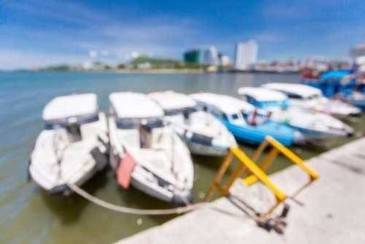With the Fourth of July approaching next week, and with temperatures steadily climbing into the 90s, Tennesseeans will hit the water this weekend to celebrate, play, and enjoy the summer sun. While everyone likes to sip on a cold beer out on the water, many people don’t realize that it is a criminal offense in the state of Tennessee to operate a boat or watercraft while under the influence “of any intoxicant” (Tennessee Code Annotated § 69-9-217). We wrote about BUIs last summer, but this summer, we want to share more with you about what constitutes BUI, BUI arrests, and BUI punishments. Furthermore, those punishments will change this summer. This Saturday, July 1st, 2023, a new law goes into effect which aligns Boating Under the Influence penalties more closely with Driving Under the Influence penalties. More information on this new law will be included below.
 The legal Blood Alcohol Content (BAC) limit for operating a watercraft is the same as that for operating a vehicle on land, 0.08%. However, BUIs and DUIs are not identical crimes, and they don’t have identical punishments.
The legal Blood Alcohol Content (BAC) limit for operating a watercraft is the same as that for operating a vehicle on land, 0.08%. However, BUIs and DUIs are not identical crimes, and they don’t have identical punishments.
The first difference between Boating Under the Influence and Driving Under the Influence is the arresting agency. In BUI cases, the Tennessee Wildlife Resources Agency is likely to be the agency conducting arrests of watercraft operators. TWRA is an independent state agency that holds responsibility for all wildlife-related law enforcement activities. This means they will patrol the waters searching for violations of the law, whether that violation be fishing without a valid fishing license or boating under the influence. While TWRA vessels are typically marked with orange and green stripes near the bow, the agency may also use unmarked vessels to patrol the waters.
As TWRA states on their website’s page on Regulations and Safety, “Every officer of the Agency has the authority to stop and board any vessel subject to the State Boating Act. They may issue citations or, when necessary, they may arrest, on sight, without warrant, any person they see violating any provisions of the Act [TCA Title 69, Chapter 9].” Not only can TWRA board your boat, they can also demand that you board their boat – in handcuffs. TWRA is also authorized to obtain blood or breath samples of drivers they suspect may be too impaired to operate a watercraft. In fact, when boating accidents involving fatalities or serious injuries occur, TWRA officers are required “to obtain blood alcohol content from all operators involved and submit the results of the blood alcohol content to the district attorney general,” according to TCA § 69-9-217.
Another major difference between BUI and DUI in the state of Tennessee is section (n) of the state’s statute on Boating Under the Influence, TCA § 69-9-217. This states that charges for BUI will not “apply to any vessel that is moored or anchored.” Motor vehicle drivers do not have to be actively driving their car to be charged with DUI, they simply must be in command of the vehicle. This means drivers who are parked in a parking lot but are still drunk behind the wheel can be charged with DUI. Under Tennessee law however, a boat’s operator is permitted to be impaired and/or at or above a BAC of 0.08% when the boat is moored or anchored. Your awareness of this legal difference can make a huge difference in your ability to protect your rights.
If you are arrested by TWRA or another agency for suspicion of BUI while operating a watercraft, there are certain penalties that result from conviction of this offense. The penalties for a BUI conviction vary depending on an individual’s prior conviction(s) for the same offense. Please note that the Tennessee Code orders DUI convictions to be treated the same as a prior conviction for BUI when determining if an individual is a repeat offender. As of July 1st, 2023, Tennessee courts are authorized to use sentencing alternatives already applied to DUI cases for BUI cases. This means first offenders for BUI will be sentenced to a minimum of 48 hours and a maximum of 11 months 29 days in the county jail or workhouse. Senate Bill 0720/House Bill 0458 furthermore institutes the penalty of a minimum of 7 days in jail for first offenders with BAC of 0.20% or more. If there was a person under 18 years of age on the vessel at the time of the offense, an individual convicted of BUI’s sentence will be enhanced by a mandatory minimum incarceration of thirty days. Individuals who are convicted for a second DUI offense must serve no less than 45 consecutive days and no more than 11 months 29 days in the county jail or workhouse. A judge may also order an individual convicted of BUI to participate in a substance abuse treatment program. The bottom line is this: if you are charged with BUI, you will be taken into custody. Lieutenant Colonel Matt Majors expressed to Fox 17 News in regards to BUI, “There will be no warnings given, if you are found to be operating a vessel impaired by our officers, you will go to jail.”
Further information on the updated penalties for BUI can be found in Senate Bill 0720/House Bill 0458. From July 1 to July 3, TWRA will be conducting Operation Dry Water to spread awareness of and enforce the new BUI law.
Best & Brock, PLLC is proud to offer experience DUI and BUI defense in Tennessee. If you or a loved one has been charged with BUI, please reach out at 423-829-1043 or with this contact form to begin building a strategy that will protect your future.
